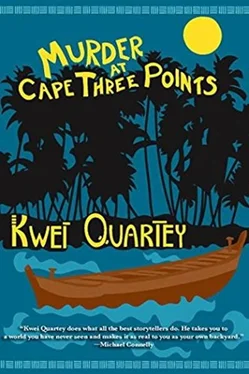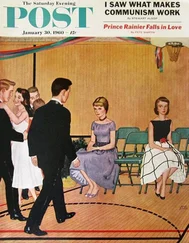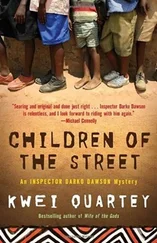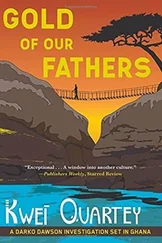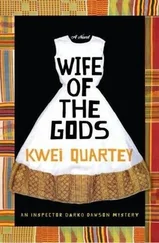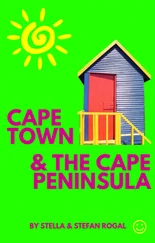“Do you have a copy of the mission statement he attached to the email?”
“Yes, I included it in the package.”
Jason’s phone rang from his desk. “Let me get that. Feel free to look through at your own pace.”
While Jason was on the phone, Dawson found the mission statement, a ten-point list with lofty goals like promulgate, elucidate, and maintain the highest ethical standards of operation in petroleum business and trade. The last item caught his eye:
To divest Goilco from activities unrelated to petroleum affairs.
When Jason got off the phone, Dawson asked him what that statement meant.
“Over the years, Goilco got involved with some ventures outside of oil,” Jason explained. “For instance, they acquired an interest in Obuasi Gold some years back. Tetteh wanted to put a stop to all that.”
“Seems like that might have antagonized a few people.”
“Including several members of the board of directors.”
Dawson reflected that if he were going to look into this thoroughly, he’d have to talk to all of those board members: a time-consuming process-maybe even time- wasting because if it took him and Chikata down a wrong path, they would end up losing precious ground on the Smith-Aidoo murder.
“You’re thinking Tetteh’s death is somehow connected?” Jason asked, as if reading Dawson’s mind.
“Maybe,” he said guardedly. He looked through the rest of the papers in the folder while Jason made some calls. The emails seemed innocuous. There was nothing here and Dawson was very disappointed. He stood up. “May I keep this folder?”
“Yes, Mr. Calmy-Rey said it would be all right to do so.”
“I really appreciate all your help.”
“No problem at all,” Jason said with a smile.
As Dawson left the office suite, he felt as though he had missed something. He remembered what it was as he was waiting for the lift to arrive. He returned to Jason’s office, knocked, and opened the door.
He looked up in surprise. “Back?”
“I was wondering-did Charles have a pen drive?”
Jason looked blank. “I have no idea, Inspector.”
Dawson nodded. “Well, if you come across one belonging to him, please let me know.”
As Dawson walked back to the lift, he reasoned that if Charles had had a personal pen drive, Dr. Smith-Aidoo was the one person who might well know where it was. Dawson was not going to be able to avoid getting in touch with her despite their recent awkward encounter. He would have to put it behind him. When he got outside the building, he called her, his dialing finger hesitating for a moment. She answered and his stomach plunged.
“Good afternoon, Doctor,” he said, trying to sound neutral.
“Hello, Inspector. How are you?” Her tone was uncolored as well.
“I’m very sorry to disturb you,” he said, “but I would just like to ask if you’ve come across a pen drive belonging to your uncle.”
“I did find one, but I’ve put it away in one of the boxes, so I’ll have to locate it and call you.”
“Thank you very, very much.”
He felt relieved as he said goodbye. She had made it painless.
DARKNESS HAD FALLEN as Dawson returned home. Chikata called him to say he was on his way back from Axim after a long, fruitless day of looking for leads. He planned to return there in the next two days.
“Call it a day,” Dawson had told him. “We’ll talk in the morning.”
He felt deflated. Nothing was turning up any leads. He felt an urgency to keep moving, however. The spotlight was now on Reggie Cardiman. Dawson planned to make a move in the morning. It would be Sunday, and millions of Ghanaians, the most religious people in the world, would be off to church, but he had never let a day of worship get in his way of an investigation.
BY 10 A.M., DAWSON and Chikata were at the Dixcove District Court trying to secure a search warrant. It required extracting the magistrate from an evangelical extravaganza in which pastors were casting out demons from evildoers. Dawson got the feeling that the warrant was issued with record speed because the magistrate wanted to get back to the spectacle. By one thirty in the afternoon, they were at Cape Three Points. Cardiman was surprised to see them.
“Can we talk in private?” Dawson asked.
“Of course. Let’s go to the office.”
Cardiman and the two detectives sat facing each other.
“Let’s go back to your meeting with Charles Smith-Aidoo,” Dawson said. “What time did Charles and Fiona Smith-Aidoo leave you?”
“I think I mentioned it before, didn’t I?” Cardiman said, “Twelve thirty?” Now he sounded less certain.
“As far as you know, where was he going next?” Dawson asked.
“Back to Takoradi, I believe.”
“Did you suggest to him that he go somewhere else before proceeding?”
Cardiman frowned. “No, why?”
“Think carefully. Did you recommend to the Smith-Aidoos that they visit the lighthouse?”
Cardiman thought for a moment and his puzzled frown cleared as soon as he remembered. “Ah, yes-you’re correct. As they were leaving I did recommend they go up there for the marvelous view. I should have mentioned that to you. My apologies.”
“ When did you recommend that?” Dawson asked.
“Around the time Charles and his wife were leaving.”
Dawson took out his notebook. “Let me read you what I noted when we first met and talked. ‘Cardiman stated: could not have ambushed vehicle if Smith-Aidoos left at twelve thirty and he left almost thirty minutes after-impossible to catch up with them in order to carry out an ambush.’ You went out of your way to make that specific point, and now you tell us you just conveniently forgot to mention that you had suggested to the Smith-Aidoos that they take a detour?”
“That’s true,” he agreed, “but Inspector, this event was four months ago. My memory isn’t infallible. And in any case, they probably decided not to go the lighthouse.”
Cardiman was thinking ahead, Dawson realized. “Why do you say that?” he asked, even though he was anticipating the answer.
“Because if they spent time at the lighthouse,” Cardiman said confidently, “I would have beaten them to the location their vehicle was found abandoned-or perhaps arrived around the same time. Obviously that did not happen, and so I could not have had anything to do with the Smith-Aidoos’ death.”
But Dawson did not agree. Deliberately or not-and Dawson suspected deliberately-Cardiman was using invalid logic: if A then B, and therefore C. It was clever, but not clever enough.
“You told us that you had parted with Charles Smith-Aidoo on good terms,” Dawson said leaning forward and boring his gaze into Cardiman, “but we’ve learned that in fact you had heated words with him because he told you that if you didn’t voluntarily vacate the Ezile property, it would be easy to pay off Nana Ackah-Yensu to kick you out.”
Cardiman’s jaw slackened. “What? Whoever told you that completely misrepresented our discussion. We did not have a big argument, and we did not part on bad terms, and Charles certainly never threatened me in the way you or your source claims. I’ve already told you what Charles said to me: He offered me a stake in a development along the Cape Three Points shoreline, including the Ezile Bay and Akwidaa locations. He showed me the plan, the expected revenue, the environmental impact assessment, and so on. And I said no.”
That was true, Dawson reflected, thinking back to their first meeting with Cardiman. That was what he had said. No matter. Dawson was not thrown off course. “Mr. Cardiman,” he said, “we’re giving you a chance to respond now: did you either kill Charles Smith-Aidoo and his wife, or hire someone to do it, or conspire with one or more people to do it?”
Читать дальше
